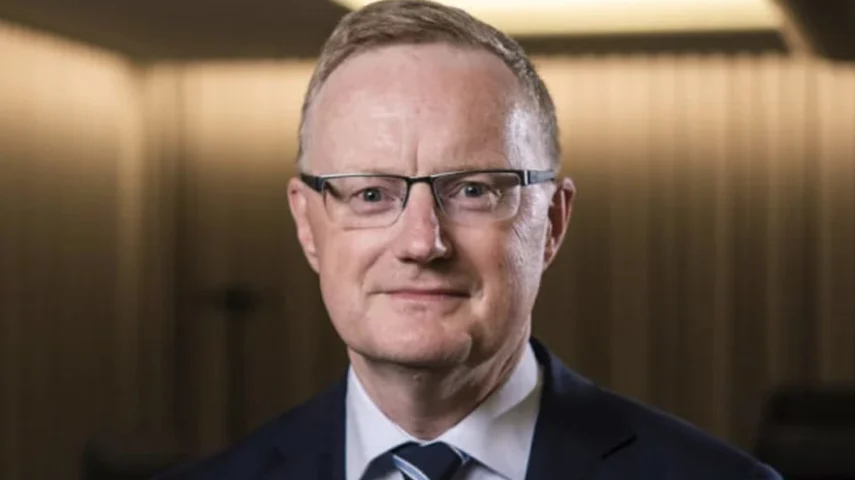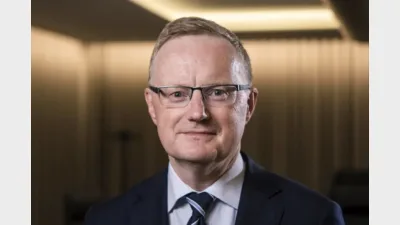End of a 40-year era for RBA’s Lowe



RBA governor Phil Lowe will mark his last day at the central bank today as he hands over to Michele Bullock.
Lowe has held the governor role since May 2016 and has worked at the bank since 1980 in a variety of roles, including head of financial stability, head of economic analysis and assistant governor.
He is also chair of the Council of Financial Regulators and a member of the Financial Stability Board.
In a speech earlier this month, Lowe reflected on his time at the bank and his achievements.
“I will leave the RBA after 43 years proud of our contribution to the stability of both our economy and financial system,” he said.
Four issues which he said had been front of mind for him during his tenure were strong frameworks for policy, monetary and fiscal policy coordination, the importance of lifting productivity and monetary policy, credit and asset prices.
He also shared that shortly after his governorship appointment, he faced a near-fatal illness when a blood clot developed in his neck but has since returned to full health.
COVID-19
One of the main challenges faced by Lowe during his tenure was steering the Australian economy through lockdowns. He famously stated that interest rates would not increase until 2024, which caught people off guard when they actually started to rise in May 2022 and have been gradually rising ever since.
Since May 2022, rates have risen from 0.1 per cent to 4.1 per cent, although they have been held steady for the past three months.
“The issue that has defined my term more than any other is the forward guidance about interest rates that was provided during the pandemic. That guidance was widely interpreted as a commitment, rather than a conditional statement, that interest rates would not increase until 2024,” Lowe said.
He continued: “As you know, interest rates started being increased in May 2022 and there has been much criticism since, especially by those who borrowed during the pandemic based on our guidance.
“At the RBA, we wanted to do what we could to build a bridge across to better times and to provide some insurance against the very worst outcomes. I know that the government had a similar mindset. This approach worked. The Australian economy avoided falling into the abyss and then bounced back well.
“With the benefit of hindsight, my view is that we did do too much.”
Speaking at the House Economics Committee in August, Lowe shared that the handling of the COVID-19 pandemic was a regret of his tenure.
He said: “Do I have any regrets? I wish I had understood the implications of the pandemic a bit more. The period in early 2020 was incredibly scary, and our mindset was to provide maximum support and maximum insurance to protect against the worst possible outcome.
“We did that, and it turned out we provided too much support and perhaps too much insurance, and that’s contributed to the inflation problems now. We didn’t fully understand the nature of the pandemic, how long it would last and what the implications would be for the economy. So I wish, in retrospect, that we’d been able to understand that in more detail.”
New appointment
In stepping away, he will hand over to Michele Bullock who was appointed by Prime Minister Anthony Albanese in July. Bullock will be the bank’s first female governor in its 63-year history.
Like Lowe, Bullock is a “lifer” at the RBA, having worked for the organisation since 1985. She was appointed to the role of deputy governor under Lowe in April 2022. Prior to that, she worked in a variety of roles including head of payments policy and assistant governor-currency.
Accepting the role at the time, Bullock said: “I am deeply honoured to have been appointed to this important position. It is a challenging time to be coming into this role, but I will be supported by a strong executive team and boards. I am committed to ensuring that the Reserve Bank delivers on its policy and operational objectives for the benefit of the Australian people.”
Other contenders in the frame had included Finance Department secretary Jenny Wilkinson, Treasury secretary Steven Kennedy and former RBA deputy governor Guy Debelle.
Recommended for you
Morningstar Australasia is scrapping its controversial use of algorithm-driven Medalist ratings in Australia next year and confirmed all ratings will now be provided by human analysts.
The dominance of passive funds is having a knock-on effect on Australia’s M&A environment by creating a less responsive shareholder base, according to law firm Minter Ellison.
LGT Wealth Management is maintaining a neutral stance on US equities going into 2026 as it is worried whether the hype around AI euphoria will continue.
Tyndall Asset Management is to close down the Tyndall brand and launch a newly-branded affiliate following a “material change” to its client base.












